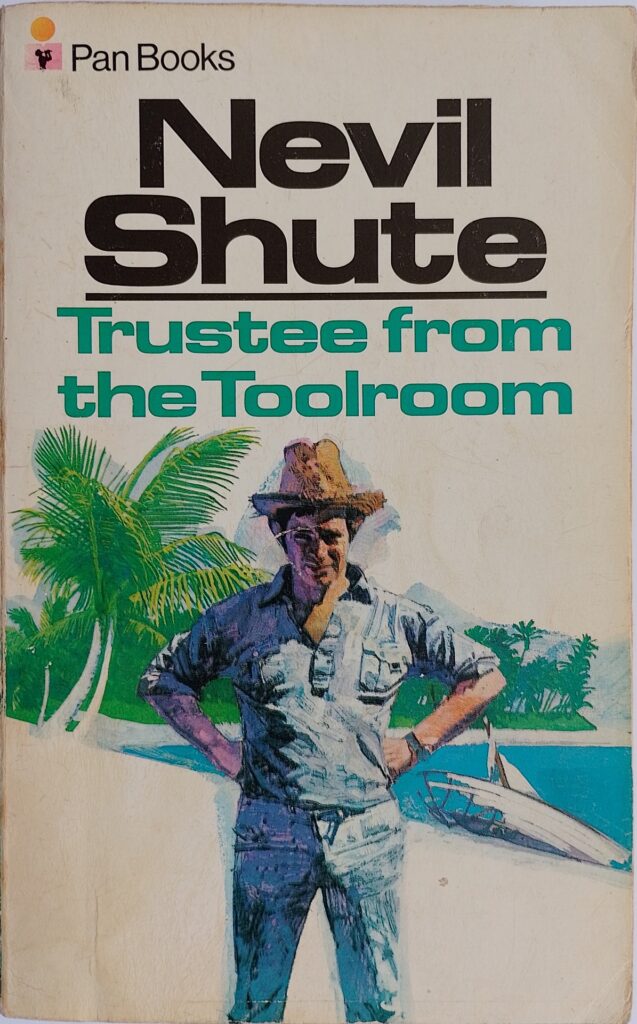First published, 1960. Pan, paperback, 1971, pp. 285, c.85,000 words.
What a charming book this is. How unusual to find a story that has real narrative drive but where no one is truly bad; actually they are all decent people.
The hero of this tale is a small man in the sense that he has no ambition beyond keeping doing what he is doing, which is designing miniature machines and writing about how to make them for a specialist magazine. He lives what would otherwise be a dull life in an undistinguished suburb of London with his wife who has equally limited ambitions. Then fate comes knocking at his door and he wants to do the right thing which means leaving what we now call his comfort zone.
It was a bold choice by Shute to choose such a diffident character as his protagonist, and it demonstrates his great skill as a writer that we care from the outset about this man and his apparently small world. In another demonstration of Shute’s masterly storytelling he boldly switches point of view quite a few times and it doesn’t jar. In part that is due to his use of the idea of ‘six degrees of separation’, i.e. if you want to get something done or get hold of someone you have never met, how do you go about it? You approach the person who you think might know, or who might know someone who would know. This could be clunky or implausible, but Shute has carefully worked his plot to make it credible. Perhaps the protagonist is slightly lucky, but why not? Sometimes the road is rough and uncertain, and our hero knows it but feels he has got to try, and somehow through some unexpected connection he makes it on to the next step.
All the characters along the chain are well drawn, full sketched in as plausible real people with sometimes complicated or conflicting reasons for becoming part of the chain of events.
Shute is good with the sea and sailing, and one feels he knows the places and conditions from first-hand experience. There is a powerful extended scene with a building hurricane that I felt was slightly out of place. Perhaps Shute wanted to include it because it is a powerful piece of writing rather than an important element driving the plot forward. The hurricane might have been just reported rather than lived through.
It has been a while since I read any Shute, and I had forgotten what a good writer he was. There are no flashy ‘literary’ devices, just compelling, easily read and absorbing story-telling, with a nicely satisfying ending. If only more books were written as well as this!
© William John Graham, July 2022

